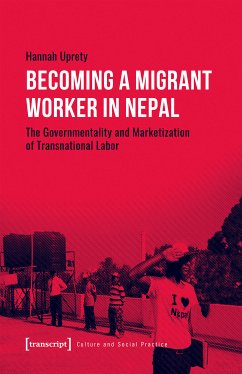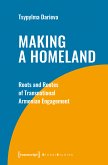High-profile events such as the 2022 FIFA World Cup in Qatar have made one thing abundantly clear: Much of today's economic growth would be unthinkable without the low-wage employment of migrant workers. But which cultural, economic, and political infrastructures in the »source« countries make these types of migration possible in the first place? Based on multi-sensory ethnographic research in Nepal, Hannah Uprety retraces the practices of recruitment and instruction that - step by step - transform Nepali labor into an internationally marketable commodity. In doing so, she uncovers a migration regime that effectively turns local men and women into »migrant workers« before they even leave the country.









